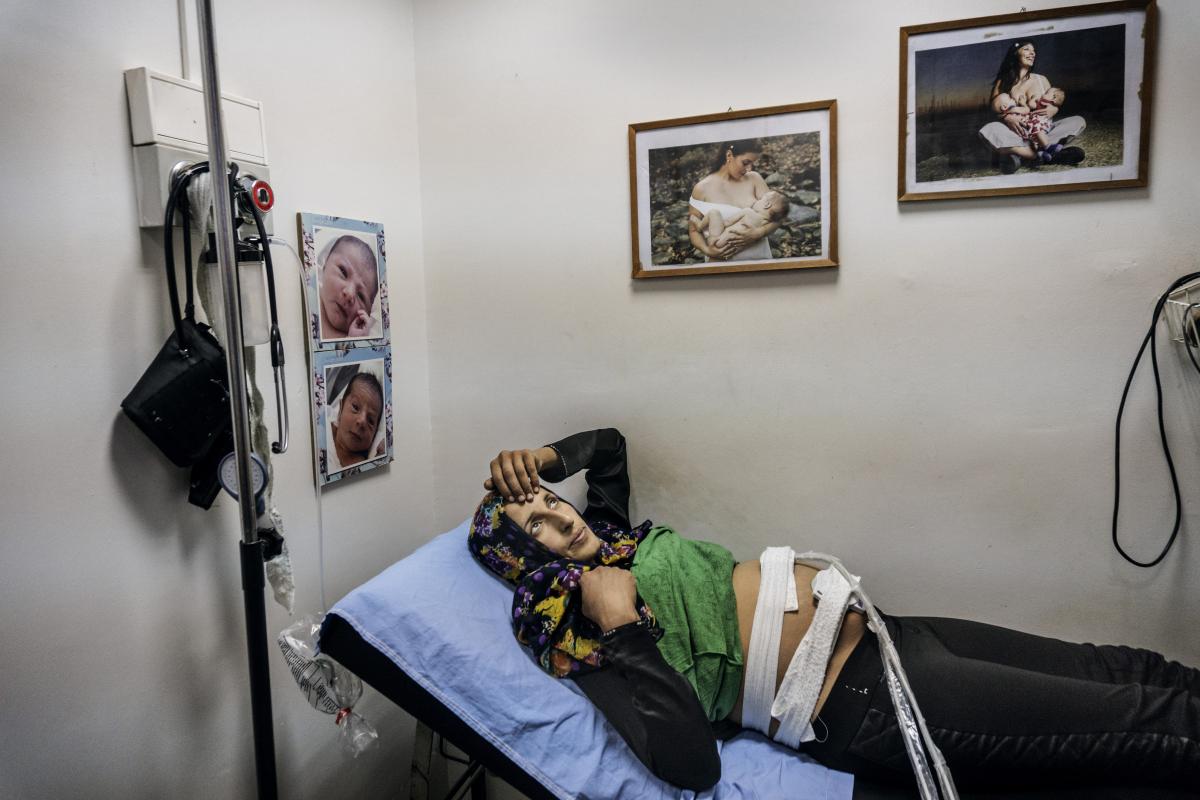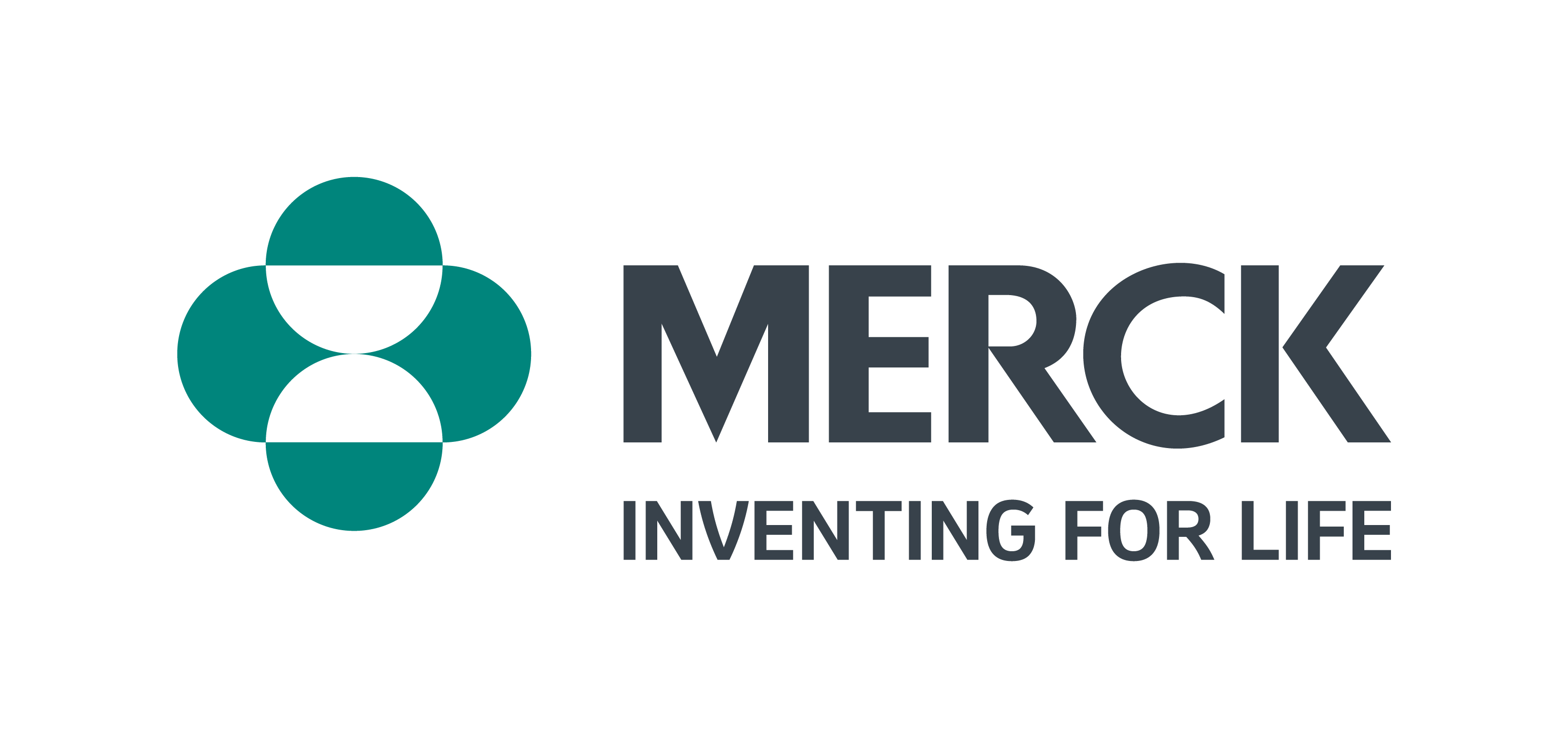Merck for Mothers Blog | A Conversation with Lynsey Addario
by Dr. Mary-Ann Etiebet, Executive Director, Merck for Mothers

Mary-Ann: What was it like to work on this assignment? How did you approach it?
Lynsey: Time's photo director, Kira Pollack, called me up and said, we have an idea: we want to follow pregnant refugees and find out how do you raise a child in a refugee camp. The Syrians were fleeing to Europe is such massive numbers. We knew it would be complicated, in part because Syrian culture is a bit conservative and Syrians tend not to be too comfortable being photographed, but we really wanted to do it. We knew it was an important story to tell.
So we went to several camps in Greece, and we spent a lot of time in the beginning meeting people and trying to find the right families for the story. We needed to find women who would be willing to let the whole crew into their tents, who would let us into the delivery room. We were in some pretty intimate situations.
We ended up closely following three women: Taimaa, Nour and Illham. I was with all three of these women throughout their pregnancies, and then after they had their babies. The Finding Home team was all women, from our writer Aryn Baker to the camerawoman to the translator. This is very unique in our profession. And most of us were mothers too. That gave us an immediate connection. We all felt very close to this story.
Mary-Ann: You've seen the struggles of Syrian refugee women close up. Tell me a little more about their experiences, things we wouldn't necessarily see in regular news coverage, and that didn't make it into the series.
Lynsey: It was a real luxury to get to spend that much time with these women. We had amazing access, and it enabled us to show the simple things of day to day life that, for these women, are just really, really hard. Like being pregnant and the nearest toilet is a 10 minute walk outside from the warehouse you're sleeping in. How do you manage to bathe your children; how do you stay clean so you don't get a bladder infection; how do you breastfeed. Hygiene and access to water are big issues in the camps. There's a shortage of food so you're not eating well. We saw women who were suffering from depression. Only a tiny fraction of what we captured made it in actually. That's just how these things go.
Mary-Ann: What are some of the missed opportunities for supporting these women and for ensuring their safety and their health?
Lynsey: One of the hardest things is lack of communication between doctor and patient. Women from Syria speak Arabic, not Greek. They turn up at the hospital in labor, and they don't have a translator, so they don't know what's going on. I was at the hospital with a woman we knew named Suad. She hadn't had a prenatal checkup since she had first become pregnant back in Syria. She thought everything was ok, that she was going in for a routine C-section. Her husband called and invited us to come and cover the birth. When we got there, the doctors had discovered that Suad had a severe case of placenta previa (a potentially life-threatening yet treatable complication, and easier to manage when detected early). Suddenly they were calling in the entire surgical team and wheeling her in for emergency surgery. She was terrified. Imagine you are lying there in active labor, in a foreign country, and you find out you might die. Fortunately she survived.
Mary-Ann: You've been documenting women's issues for most of your career, and you've been covering maternal health specifically for the last seven or eight years while on assignment in many different countries. Is there something common to all women who make this journey into motherhood?
Lynsey: That's hard to say. In Sierra Leone, I saw two women bleed to death while giving birth in just the five days I was there. That happens a lot there. When I was in Afghanistan, I picked up a woman who was stranded on the side of the road; she was in labor and couldn't get to the hospital. Her husband bad borrowed a car but it had broken down.
Europe is a different context. There you have hospitals and technology and doctors – you have resources. The problem is that these women from Syria don't have anyone to help them navigate the system, to guide them. They are extremely traumatized from having fled war and violence and destruction back home. They don't have their extended families with them. They don't have their support network. So the challenges vary.
Mary-Ann: And even though maternal mortality can strike anyone, anywhere, the perception of risk varies too.
Lynsey: Yes. Some people don't think about all the things that can go wrong. Of course, if you work in maternal health, you know there's always a risk of complication. And you know that the risks are higher when you don't have prenatal care, something you can't get when you're on the run.
Mary-Ann: What do you want the Finding Home audience to come away with after viewing your images?
Lynsey: The war in Syria has been going on for seven years now. We've seen the dramatic images of refugees streaming across borders, crossing the sea on boats -- the hardships they've faced trying to get to safety. One of our goals here was to take that story to the next level, to get the audience to relate to the people in the photos, particularly the experience of being pregnant and giving birth and caring for children. We wanted to personalize the journey of these mothers. We wanted people to feel they knew these families and to care about what happens to them. And they do care. If you look at our social media feeds we have followers who are clearly attached. If we don't post for a while readers comment asking us how the families are doing.
Mary-Ann: Will you continue to cover maternal health?
Lynsey: I feel I need to do more work on it, yes. Who are these women who are dying in childbirth? Not just in countries like Sierra Leone, but in the United States? Our maternal death rates are ridiculous compared to the rest of the developed world.
We invite you to visit the Merck for Mothers website to join the conversation.
About Merck for Mothers
Merck for Mothers is a 10-year, 500 million dollar initiative that applies Merck scientific and business expertise – as well as its financial resources and experience in taking on tough global healthcare challenges – to end preventable maternal mortality worldwide. To achieve this, Merck for Mothers is providing transformational and sustainable solutions focused on improving the quality of maternal health care women receive at health facilities and increasing women’s access to family planning.
Merck for Mothers focuses on helping countries reduce maternal mortality and improve maternal health with the overall aim of supporting United Nations’ Sustainable Development Goal (SDG) 3.1, which calls for a global reduction in the maternal mortality ratio to fewer than 70 maternal deaths per 100,000 live births by 2030. For more information, visit www.merckformothers.com.

